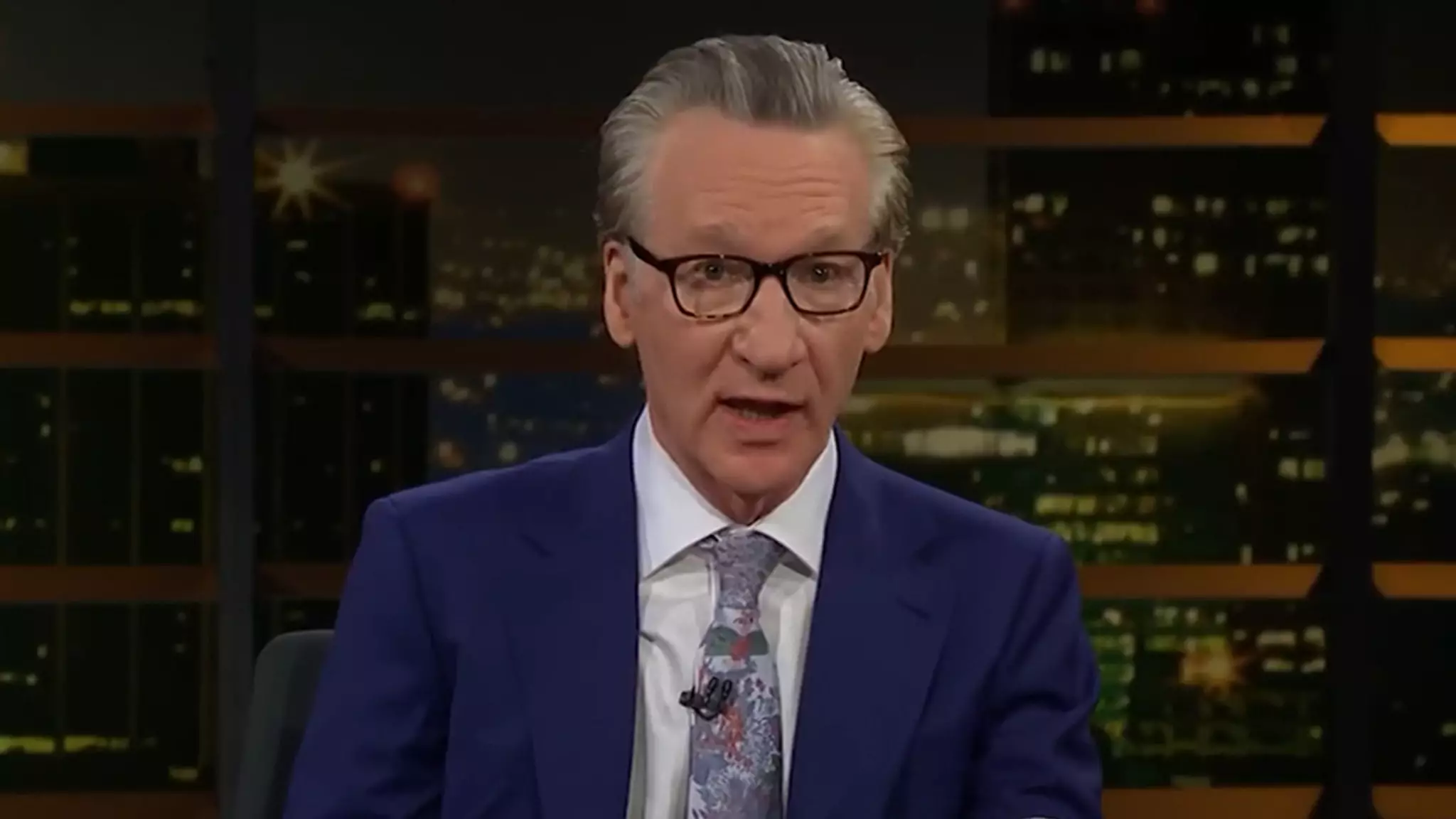In a world increasingly characterized by political polarization, the intertwining of romance and ideology presents a troubling reality. Bill Maher, an iconic voice in political commentary, recently brought this issue to the forefront by reflecting on the season finale of Netflix’s “Love Is Blind.” The show’s drama depicted the tension between personal values and romantic compatibility, showcasing how participants Sara Carton and Ben Mezzenga’s engagement crumbled under the weight of political expectations. Maher’s commentary suggests a critical failure: that many individuals, particularly within liberal circles, are willing to sacrifice the chance for meaningful connections over differences in political beliefs.
The Perils of Wokeness in Dating
Sara’s decision to walk away from her potential marriage to Ben—simply because he had not placed sufficient emphasis on Black Lives Matter—raises an unsettling question: Are we, in our quest for social justice, overlooking the fundamental aspects that bind us as human beings? Maher argues that the ruthlessness with which some individuals dismiss potential partners based on political affiliations could leave them isolated and unfulfilled. In a society that thrives on open dialogue and diverse opinions, the rejection of differing viewpoints in romantic relationships may lead to an inevitable void of connection.
The phenomenon echoes beyond the context of a reality show; it speaks to a broader trend of political elitism among younger generations. With an increasing number of Gen Z-ers committing to ideological purity, they may unknowingly be paving their path to loneliness. The fixation on political correctness can morph into an insurmountable barrier within the romantic sphere—transforming the dating landscape into a rigid, dogmatic environment devoid of flexibility and compassion.
The Necessity of Dialogue Across Divides
Maher emphasizes that Democrats and Republicans alike need to engage in honest conversations. The notion of political romance—the idea that opposing views can coexist within the context of a relationship—is both refreshing and necessary. This perspective echoes an essential truth: dialogue is crucial for understanding, and love, in its many forms, recruits a multitude of viewpoints. The potential for fruitful partnerships between individuals who disagree politically should not be overlooked; rather, these relationships can serve as conduits for growth and empathy.
Despite facing backlash for advocating discourse across party lines, Maher, undeterred, offers an insightful perspective: political affiliations need not define our realities, especially when it comes to human connections. The challenge, however, lies in overcoming the comfort of ideological echo chambers that many find themselves in today. To cultivate deeper relationships, one might embrace discomfort and engage with differing opinions, thereby fostering a more inclusive dating landscape.
Waking Up to a New Dating Perspective
Ultimately, Maher’s take serves as a wake-up call. The stakes are high if the current trajectory continues, as increasing numbers of individuals chase ideological “perfect matches” at the expense of human connection and unconditional love. Rather than being a detriment, romantic connections that span the political spectrum might enrich individuals and lead to breakthroughs in understanding. In a world where politics often divides, choosing to love amidst disagreements could very well be the radical change we so desperately need.

